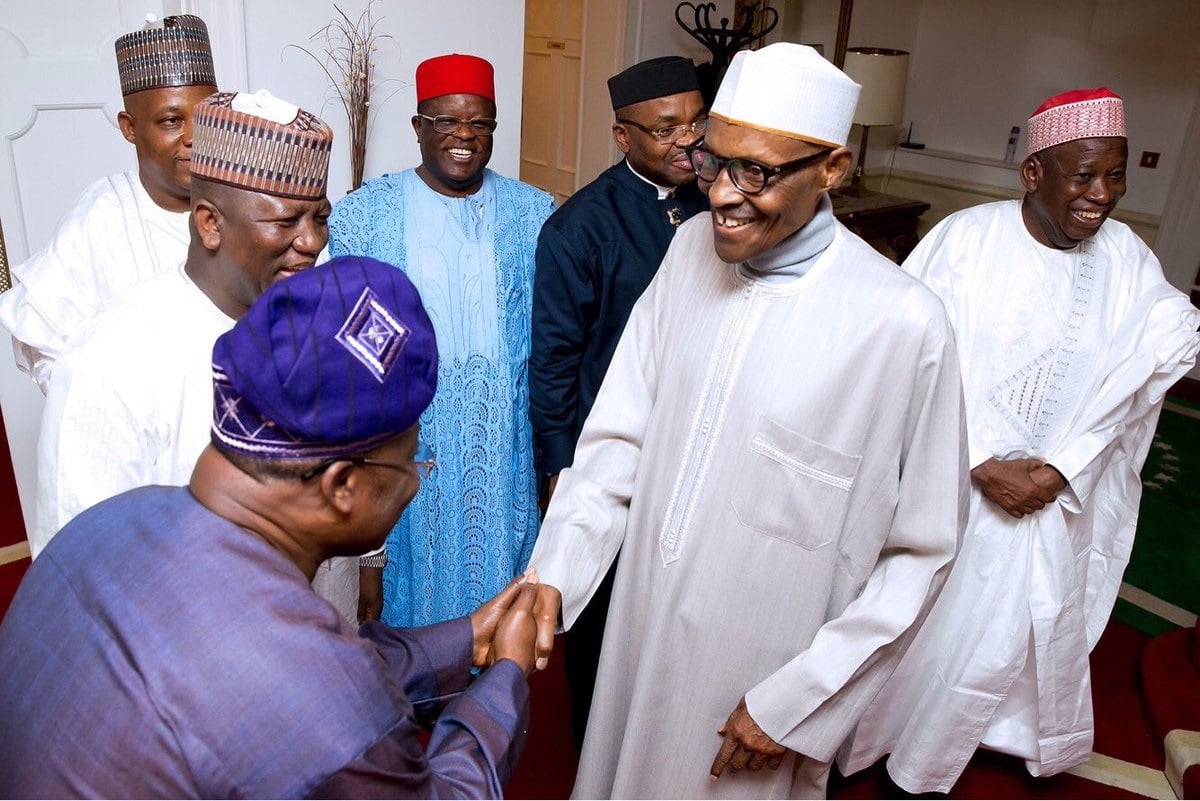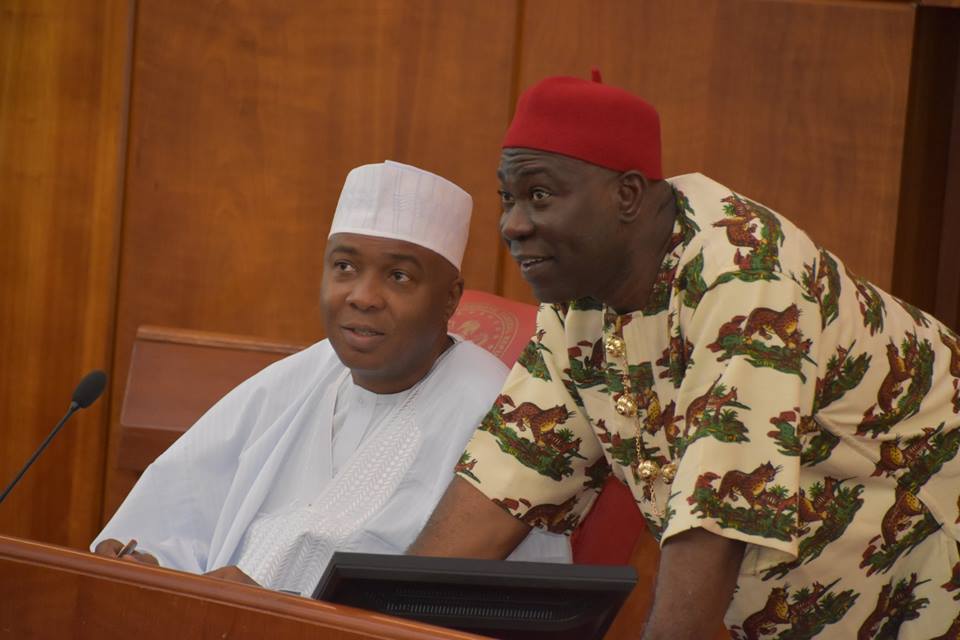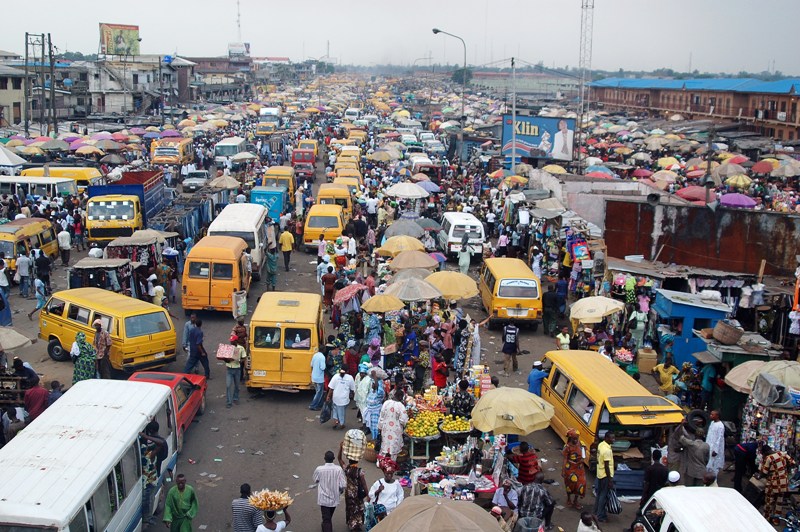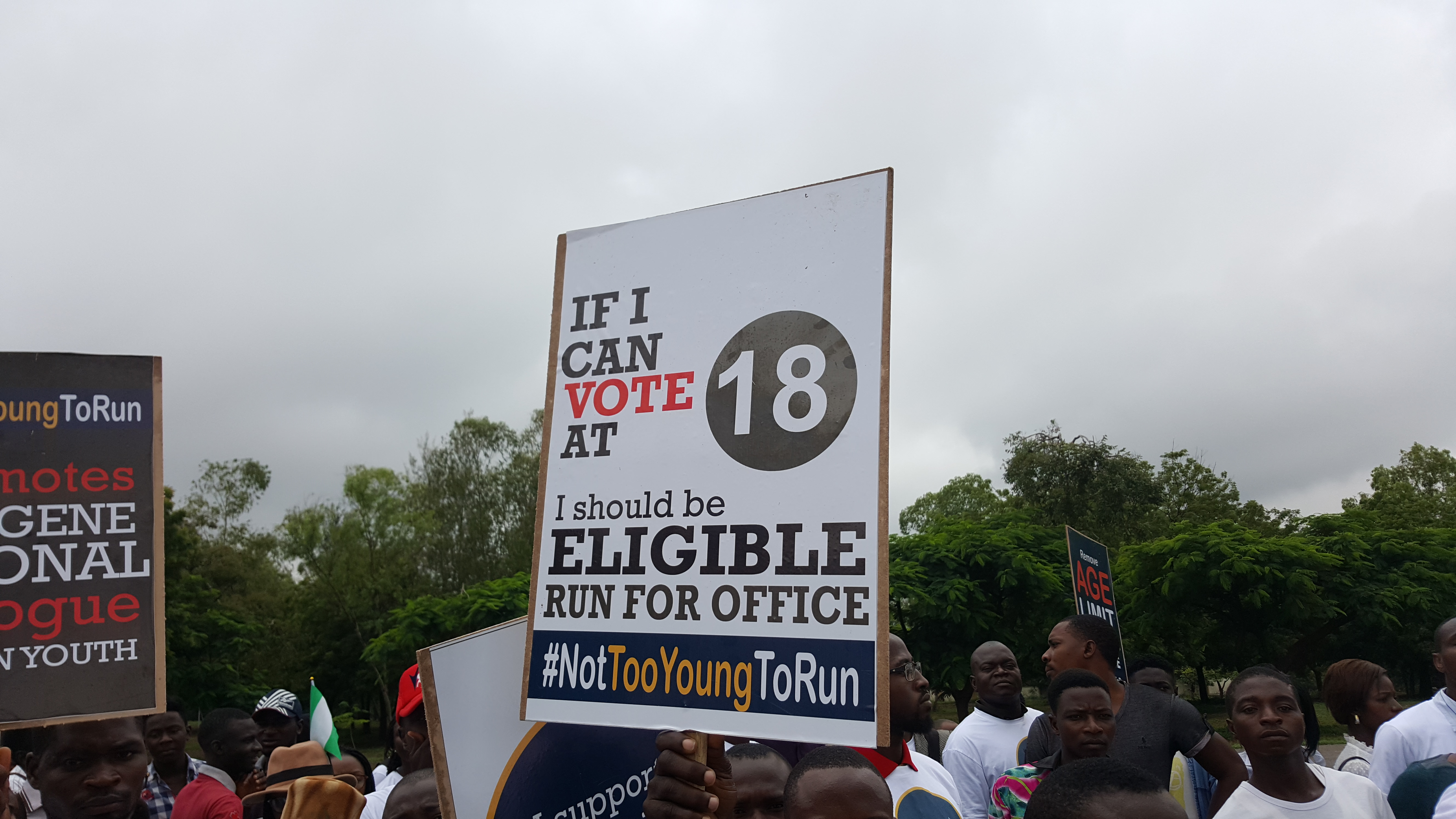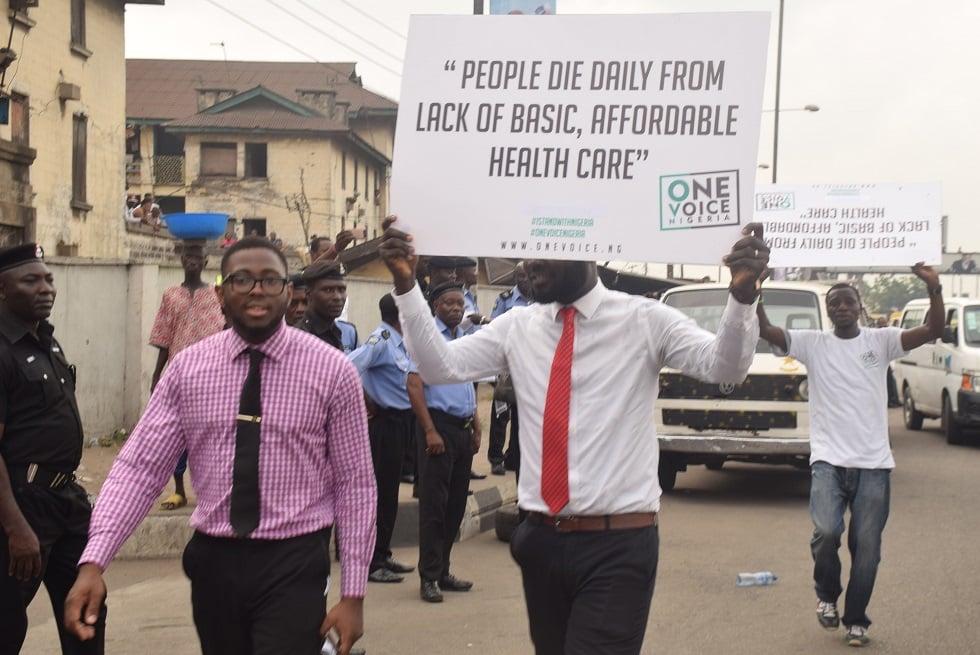The Constitution does not recognize the rights of minorities or minority groups but the fundamental rights of every individual living in Nigeria. The African Charter on Human and Peoples Rights has gone further to recognize the collective rights of the African people. Since there is equality before the law which requires that there shall be equal opportunities for all citizens the concept of minority rights is a misnomer. For the avoidance of doubt, section 42 of the Constitution and article 2 of the African Charter on Human and Peoples Rights provide that every person shall be entitled to the enjoyment of human rights without distinction of any kind such as race, ethnicity, sex, language, religion, political or any other opinion, national and social origin, fortune, birth or other circumstance.
I am therefore not going to speak on the human rights of minority groups because it is a fiction. On the contrary, I am going to speak on the dichotomy between the human rights of the members of the bourgeoisie and the masses of oppressed people. In doing that I am going to demonstrate that the fundamental rights constitutionally guaranteed for all citizens are enjoyed by a few people who have the economic wherewithal to enforce them while the majority of citizens are perpetual victims of violations of human rights as they lack the means to enforce them. We shall conclude by asking the Nigerian people to struggle for the enforcement of socioeconomic rights enshrined in chapter 2 of the Constitution.
THE ORIGIN OF MINORITY RIGHTS IN NIGERIA
In order to hide the ideological bias of human rights discourse, human rights are said to be inalienable, immutable, universally valid and applicable. This is totally misleading as human rights are a product of the collective struggles of oppressed peoples in various parts of the world. In fact, history has shown that human rights have been exploited byoppressors at different historical epochs to advance their class interests. In the case of Nigeria, the imperialists neither recognized nor respected the human rights of the peoples of Africa during the slave trade and colonial era which lasted for over five centuries in spite of the much proclaimed universality and inalienability of human rights.
Advertisement
But on the eve of political independence the departing British colonial regime ensured that the right to private property and other civil and political rights were entrenched in the independence Constitution. Contrary to the claim that fundamental rights were entrenched in the Nigerian Constitution to protect the interests of the minority groups in Nigeria they were entrenched to protect the human rights of aliens and the economic interests of foreign governments and companies. As I had noted elsewhere, similar bills of rights had been enshrined in the constitutions of India, Ghana and other former British colonies which obtained independence before Nigeria.
Apart from the independence constitution the ruling class has entrenched human rights in other constitutions and ratified some international human rights treaties and conventions. Essentially the rights embodied in such instruments include the right to life, the right to human dignity, the right to personal liberty, the right to fair hearing, the right to religion and conscience, the right to property, the right to privacy of home, the right to freedom of expression, the right to freedom of association, the right to freedom of assembly, the right to acquire property and live in any part of Nigeria, the right to adequate and just compensation when the properties of citizens are acquired in the public interest. Because these human rights which are civil and political in nature cannot be enjoyed without economic empowerment, majority of the Nigerian people have been denied the opportunity to enjoy them due to poverty and ignorance.
It is our submission that without adequate food the rights to life and human dignity are meaningless to the vulnerable segment of the populace. Similarly, the right to housing has no relevance to people who are displaced and expelled from cities due to the so called urban renewal projects carried out by governments. When the right to life of certain persons is terminated through extra-judicial killing by the police and other law enforcement agencies those who depend on them for their education and welfare are rendered vulnerable. Without access to education the right to freedom of expression is of no consequence to millions of illiterate people. In view of pervasive poverty in the society it is no longer in dispute that as long as socio-economic rights are not made justiciable majority of citizens cannot enjoy the civil and political rights guaranteed by the Constitution.
Advertisement
ILLEGAL DEPORTATION AND DISPLACEMENT OF CITIZENS
Urban renewal has led to forceful removal and deportation of physically challenged people begging for alms in state capitals. Instead of rehabilitating such beggars state governments have deported them to their states of origin. But such deportations targeted at poor citizens who are Christians, Muslims and adherents of traditional religions cannot be justified under the Constitution of the Federal Republic of Nigeria, 1999 as amended. Specifically, deportation of citizens constitutes a violation to the dignity of persons (Section 34), personal liberty (Section 35), freedom of movement (Section 41) and right of residence in any part of Nigeria (Section 43) the beggars involved ought to be rehabilitated by the State.
Article 12 of the African Charter on Human and Peoples Rights (Ratification and Enforcement) Act, Cap A9, Laws of the Federation of Nigeria, 2004 guarantees the right of every individual to freedom of movement and residence within the borders of a State and has prohibited the mass deportation of nationals in any African country. In Director, State Security Service v OlisaAgbakoba (1999) 3 NWLR (Pt 595) 340 the Supreme Court of Nigeria upheld that the right of every citizen to freedom of movement including the right to live in any part of the country.
The right of poor citizens to live peacefully is often violated by many state governments which engage in the demolition of the so called illegal structures in the urban centres. While the illegal structures are demolished with or without notice the mansions of the rich built without approved building plans are allowed to be regularised by state governments. In Chief Jacob Obor& Others v Federal Capital Development Control & Others (unreported suit No CV/3998/2012) our law firm convinced the High Court of the Federal Capital Territory to stop the planned demolition of Mpape, a large settlement in the territory. Since Nigerian are entitled to housing state governments should not be allowed to embark on the demolition of the homes of the poor without alternative accommodation.
Advertisement
Although Governor El rufai was reported to have directed the Police to arrest the members of the Arewa Youth Congress for asking all Igbo people to quit the 19 states in the north within 3 months he lacks the moral right to enforce the directive. After all, he has engaged in the illegal demolition of houses and displacement of millions of citizens when he was the Minister of the Federal Capital Territory and now as governor of Kaduna state. In fact, after the brutalisation and killing of the 347 members of the Shia community the governor ordered the demolition of the houses of IMN leaders in December 2015 without any court order. Even though the federal government has assured the Igbo people of their safety in the north all men and women of goodwill must ensure that the quit notice is not carried out.
ILLEGAL BAN OF CIVIL SOCIETY ORGANIZATIONS
In violation of the fundamental right to freedom of association the government has banned some voluntary societies without any legal basis. The governor of Kogi state, MrYahaya Bello has just announced the proscription of the Kogi state university branch of the Academic Staff Union of Univeristies on the ground that its members have refused to call off an industrial action to compel the state government to pay arrears of salaries and allowances of almost one year. The ban is illegal as no state government has the power to proscribe a trade union registered under the Trade Union Act.
Before then, Governor Nasir El Rufai of Kaduna state had purportedly banned the Islamic Movement in Nigeria. This was after the state government had abdicated its legal duty to prosecute the armed troops who killed 347 unarmed members of the IMN. Since the action of Governor El Rufai was not authorized by any court of law the members of the IMN have rightly defied the illegal ban. Notwithstanding the illegality of the ban the Nigeria Police Force has attempted to enforce it by preventing the IMN members from protesting against the illegal and contemptuous detention of their leader, Sheik IbraheemElzakzaky and his wife.
Advertisement
The violent disruption of the peaceful rallies of the IMN members and other law abiding citizens is contemptuous of the judgment of the Court of Appeal in Inspector-General of Police v All Nigeria Peoples Party (2008) 12 WRN 65. In that case, the Court of Appeal upheld the fundamental right of Nigerians to convene public meetings and rallies without police permit. But the illegal action of the authorities of the Nigeria Police Force is not surprising in view of the illegal ban which they have placed on the Peace Corps of Nigeria. Apart from the fact that the organization is registered by the Corporate Affairs Commission under the Companies and Allied Companies Act our law firm had secured a perpetual injunction from the Federal High Court restraining the Police form harassing the members of the Peace Corps of Nigeria in any part of the country.
UNLAWFUL KILLING OF CITIZENS
Advertisement
I have recently condemned the extra-judicial execution of criminal suspects by the police, the unlawful killing of unarmed civilians including women and children by the armed forces and deadly attacks on communities by violent militias and other armed bandits. To prove that the unlawful killing of unarmed citizens did not start under the current administration I referred to the military invasions of Odi in Bayelsa state (1999), ZakiBiam in Benue State (2001) and Gbaramotu in Delta state (2009) and other violent attacks on unarmed people by the police and the armed forces. It was my contention that “some nihilist groups have taken advantage of the growing culture of official impunity to engage in savage killings, abductions and other primitive brutalization of unarmed people. Some of the victims of kidnapping are brutishly killed while the hapless families of others are forced to pay huge ransom to secure their release.”
But having undertaken to end impunity and the egregious violations of human rights the Buhari administration should bear responsibility for the unlawful killing of citizens by security forces and other armed gangs. The forceful acquisition of grazing zones is not the solution to the regular violent clashes between herdsmen and farmers in the country. To stop the reckless killings the government should be preparedto build abattoirs and ranches. In DorcasAfolalu v Federal Republic of Nigeria (unreported Suit No. ECW/CCJ/APP/04/12)the ECOWAS Court held that the Government of Nigeria is under a legal obligation to protect the life of every citizen. In the circumstance, the federal government should comply with section 14 of the Constitution which stipulates that “the security of life and welfare of the people shall be the primary purpose of government.”
Advertisement
ENTRENCHMENT OF SOCIOECONOMIC RIGHTS IN THE CONSTITUTION
Realising that economic and social rights are an integral part of human rights the socialist members of the United Nations influenced the adoption of the International Covenant on Economic, Social and Cultural Rights (ICESCR) in 1966. It is on record that the historic document contributed significantly to the campaign of oppressed peoples all over the world for the justiciability of socio-economic rights. Many countries including capitalist states have been compelled to institutionalize a welfare scheme to protect the interests of poor citizens. In the United States of America the Donald Trump administration has not succeeded in repealing the Obamacare because it has not found a better alternative to the health insurance policy.
Advertisement
It is pertinent to note that the socioeconomic rights embodied in Chapter 2 of the 1999 Constitution include the right to security and welfare, right to political participation, right to education, right to health, right to environment, right to secure adequate means of livelihood including suitable and adequate shelter, suitable and adequate food, reasonable national minimum living wage, old age care and pensions, unemployment, sick benefits and welfare of the disabled and other vulnerable people. In order to guarantee national prosperity the State is obligated to promote a planned and balanced economic development and harness the resources of the nation.
However, successive military and civilian governments have ensured that while civil and political rights are justiciable the jurisdiction of the courts is completely ousted with respect to the enforcement of socio-economic rights. In other words, the fundamental objectives are regarded as mere ideals which cannot be enforced in any court as there are no funds to implement them. Even though in its manifesto, the All Progressive Congress(APC) promised to build a welfare state, the party has reneged on the ground that the Peoples Democratic Party has ruined the economy. It is doubtful if the APC has considered the fact that majority of its leaders were leading members of the PDP.Although the mega looting of the national treasury is being investigated by the anti graft agencies the Nigerian people are being penalized for the mismanagement of the economy by the ruling class.
Electricity tariff has been increased even though there is no improvement in electricity supply. Nigerians are being forced to pay more for education, health, fuel and other essential social services. The APC-led government has made it clear that it is unable to fulfill its electoral promises due to the damage done to the economy by the PDP and on account of the fall in the price of crude oil in the international market. Since the federal government is a position to borrow N600 billion every month to pay salaries and maintain a parasitic bureaucracy there can be no justification for not funding the welfare programme promised by the APC. It is therefore suggested that the stolen wealth being recovered should be channeled towards the funding of a welfare programme for the people.
NON-PAYMENT OF WORKERS’ SALARIES
By virtue of section 17 of the Constitution the government is under a legal obligation to provide for a living national minimum wage and make conditions of work just and humane. But in total disregard of its constitutional responsibility to Nigerian workers the government has provided for a starvation wage of N18,000.00 per month. Even the starvation wage is not paid as and when due as stipulated by law. According to President Buhari, workers in 27 out of 36 states are owed arrears of salaries. Although the Nigerian people have been asked to be prepared to tighten their belts no tier of government in the country has taken steps to reduce the expensive costs of running the public service. Over 70 percent of the budget still goes for servicing a parasitic bureaucracy.
No government has reviewed projects that constitute a drain on public treasury. Governors still travel so regularly to Abuja and other places in hired jets. There are 11 planes in the presidential fleet! Public officers move around in long convoys. The governments have hired hundreds of aides and consultants. Jobs which can be handled by civil servants are firmed out to contractors at skyrocketing prices. Majority of state governments have refused to adopt the TSA to eliminate the diversion of public funds. Even the much touted corruption is only being fought by the federal government while it has remained business as usual in all the states and local government councils in the country.
Some ministers, senators and other public officers earn double salaries while no state government has reduced the scandalous pension package for ex-governors in terms of salaries for life, houses in the state capitals plus Abuja, medical, vehicle and other allowances etc. Some officers serve for 4 or 5 years and retire at less than 50 years of age only to be paid an exit package of not less than N500 million. Because there is not much law making going on legislators have opted for the business of executing constituency projects and conducting public hearing on all matters including the investigation of criminal offences and auditing/probing of public accounts when you have the police, the anti graft agencies and the office of the auditor-general. With houses of assembly at the states what is the justification for retaining the legislative councils in the 774 local government councils and the 6 area councils in the Federal Capital Territory? How did the budget of the national assembly increase from N45 billion per annum to 150 billion and now reduced to N125 billion? Do we need full time or part time legislators at the federal and state levels?
With the profligacy in government there is no sign that we are going through tough times. Our public officers are paid the highest traveling allowances or estacode while our legislators are the highest paid in the world. After collecting wardrobe, housing and vehicle allowances of billions of Naira the federal legislators purchased exotic cars which they approved for themselves. The payment of the illegal security votes by the federal, state and local governments has not ceased. Thousands of people going on pilgrimage to Mecca and Jerusalem yearly are sponsored by our governments while legislators and other top public officers regularly embark on wasteful foreign tours at public expense. With dwindling revenue from the sale of crude oil no government in Nigeria has taken the diversification of the economy beyond rhetorics.
LIMITED GAINS OF DEMOCRATIC STRUGGLES
Notwithstanding the conspiracy of the ruling class to make the fundamental objectives non-justiciable the socio-economic rights enshrined in the African Charter are applicable and enforceable in the courts. In addition, certain provisions of Chapter II of the Constitution have been enacted into law by the ruling class based on the struggle of the working people and their allies for the establishment of a welfare State. Such enactments include the Price Control Act 1975, Peoples’ Bank Act 1992, Nigerian Education Bank Act 1993, National Minimum Wage 2011, Child’s Right Act 2003, Compulsory, Free, Universal Basic Education Act 2004, National Health Act, 2014, Pension Reforms Act, 2014 etc. Even the workers in any privatised government enterprise are entitled to 10 percent of the shares pursuant to the Privatisation and Commercialisation Act.
Regrettably, Nigerians are not aware of the provisions of the various welfare laws. While lawyers have concentrated attention on the defence of political and civil rights the courts have not helped matters as cases filed by some civil rights lawyers for the enforcement of these laws are struck out, from time to time, for want of locus standi. Disappointed but undaunted the human rights community has continued to file more public interest cases in the courts. Happily, the anachronistic doctrine of locus standi has been abolished in the area of human rights. Having regard to the general ignorance and fear among the people the courts ought to encourage public interest litigation in order to enforce socio-economic rights of citizens and promote welfare laws in the land. It should however be pointed out that judicial pronouncements in favour of social justice can be conveniently ignored by a government that is administered by an army of neo-liberal ideologues who are committed to the defence of market fundamentalism.
Therefore, the struggle for the economic empowerment of the masses transcends the legal arena. It is a battle for popular democracy as opposed to liberal democracy is a battle for the democratic control of the economy to ensure that “the material resources of the nation are harnessed and distributed as best as possible to serve the common good” as stipulated by section 16(2) of the Constitution. To reclaim the welfare state from its obstinate opponents in government aided by the Bretton woods institutions, Nigerians should be mobilized to ensure compliance with the various welfare laws and intensify the campaign for the full justiciability of the provisions of Chapter 2 of the Constitution. Having recorded tremendous success in the promotion of political and civil rights our human rights organizations should now engage in the enforcement of the right to development and the socio-economic rights of the people.
CONCLUSION
From the foregoing, it is crystal clear that there are no minority rights. However, the rights of all citizens guaranteed by the Constitution are civil and political in nature. To that extent, they are of no relevance to the masses of our economically disadvantaged people. Unless the fundamental objectives enshrined in Chapter 2 of the Constitution and the socio-economic rights guaranteed by the African Charter on Human and Peoples’ Rights (Ratification and Enforcement) Act are actualized, fundamental rights will remain the exclusive preserve of the bourgeoisie. The Nigerian people should therefore compel the government to adopt measures that will lead to the enforcement of all the welfare laws which have been enacted by the National Assembly and various houses of assembly pursuant to Chapter 2 of the Constitution.
The ongoing review of the Constitution by the APC-controlled National Assembly is designed to perpetuate the status quo. Hence the legislators have not proposed any amendment that will improve the quality of lives of the Nigerian people. To free our society from the tiny grip of a selfish ruling class the Nigerian people should be organized and mobilized to struggle for popular democracy. In the words of Nelson Mandela, “A simple vote, without food, shelter and health care is to use first generation rights as a smokescreen to obscure the deep underlying forces which dehumanise people. It is to create an appearance of equality and justice, while by implication socio-economic inequality is entrenched. We do not want freedom without bread, nor do we want bread without freedom. We must provide for all the fundamental rights and freedoms associated with a democratic society.”
Being the paper presented by Falana at the Third International Quds Conference & Book Launch held in Abuja on Saturday
Views expressed by contributors are strictly personal and not of TheCable.
Add a comment


